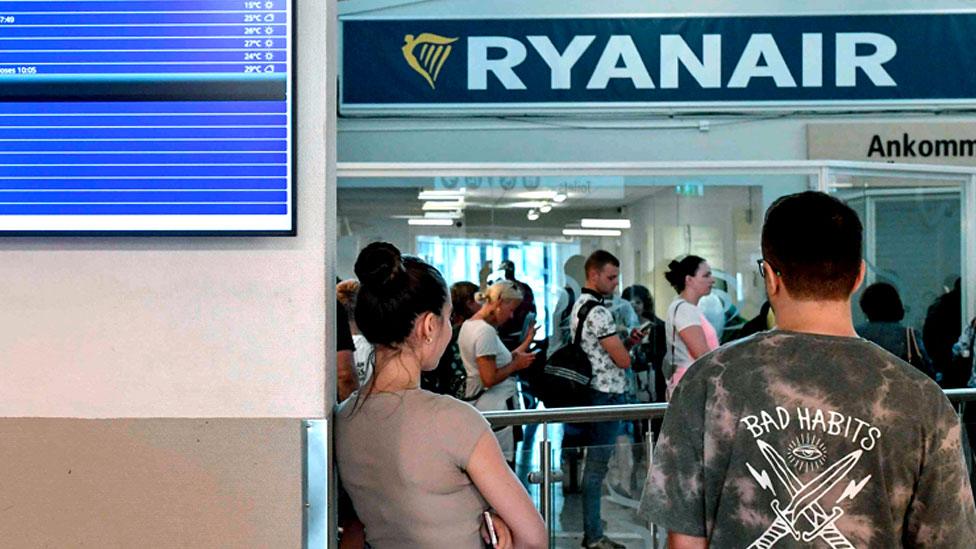Ryanair warns on profits as strikes hit income
- Published
- comments
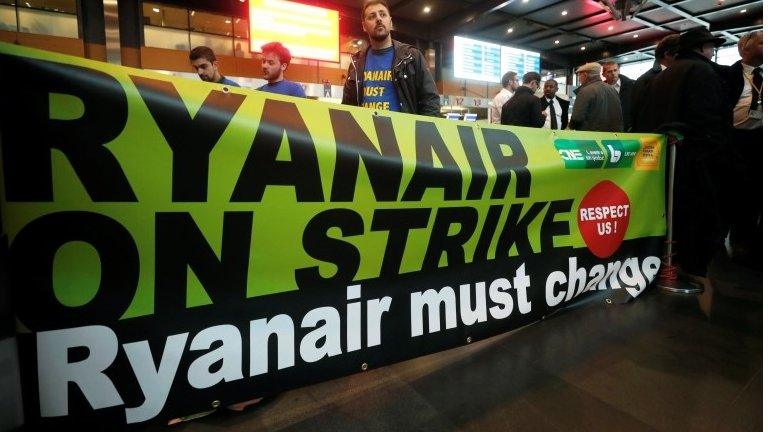
Ryanair staff in Germany, Holland, Belgium, Spain and Portugal went on strike last week
Ryanair has warned investors its full-year profits will be lower than expected, partly due to the recent wave of industrial action.
The airline said its profits would be 12% lower than the €1.25-1.35bn (£1.11-1.2bn) previously forecast, and it now expects profits of between €1.1-1.2bn.
Ryanair said this was due to higher oil prices, higher costs associated with EU flight compensation rules, and weaker fares due to the recent strikes.
It warned it may lower forecasts again.
Shares in the airline opened down 8%.
Last week, cabin crew and pilots in Germany, Holland, Belgium, Spain and Portugal took industrial action which led to a number of flight cancellations.
Bigger fuel bill
Ryanair said fares for the third quarter of the year were lower as forward bookings, particularly for the October school mid-terms and Christmas, were being affected by fear of further strikes.
The carrier said it had not hedged its fuel bill against prices rises, and this meant it would be paying 10% more for its fuel thanks to the recent rise in the global price.
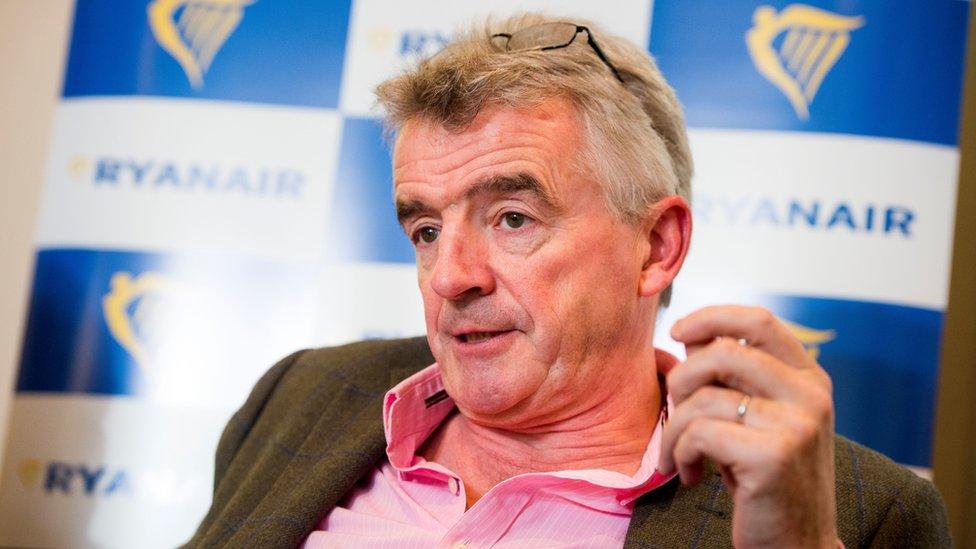
Ryanair chief executive Michael O'Leary has called the strikes "unnecessary"
Ryanair chief executive Michael O'Leary said: "While we successfully managed five strikes by 25% of our Irish pilots this summer, two recent co-ordinated strikes by cabin crew and pilots across five EU countries has affected passenger numbers (through flight cancellations).
"Customer confidence, forward bookings and [third quarter] fares have been affected, most notably over the October school mid-terms and Christmas, in those five countries where unnecessary strikes have been repeated."
The airline is making cuts to some routes and closing some of its bases.
Its four-aircraft Eindhoven base in the Netherlands will close, although most routes to and from Eindhoven will continue on overseas-based aircraft. It is taking the same action at its two-aircraft Bremen base in Germany and is making cuts at its Niederrhein base.
Ryanair says all affected customers have been contacted by email or text message, and will be re-accommodated on other flights or refunded as they wish.
Disputes
After many years of ignoring workers' attempts to get it to recognise unions, Ryanair finally agreed at the end of 2017.
But staff in a range of countries have continued to have issues with the company's employment practices, in particular its use of contracts based on Irish employment law and its insistence on paying staff through Irish bank accounts, which cause those based elsewhere extra inconvenience and costs.
In a complex industrial relations background, involving different disputes in different countries with cabin crew and pilots with their own grievances, Ryanair broadly says it is offering staff what they have asked for.
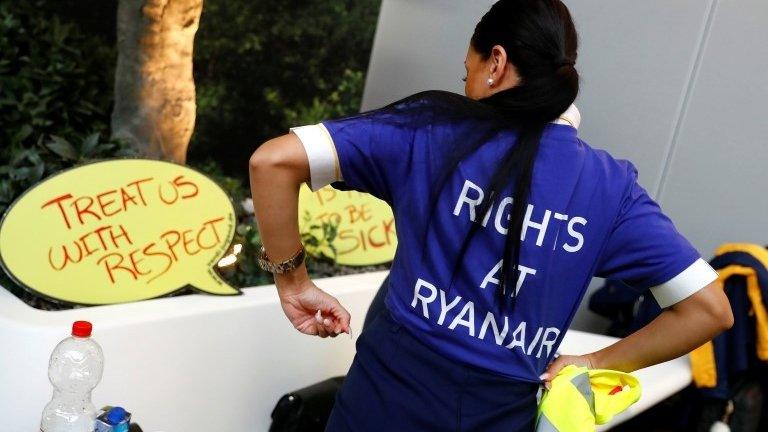
A striking cabin crew member at Frankfurt airport
But staff in certain parts of the company's cross-border operations plainly do not agree, because the possibility of further strike action remains.
Ryanair said in its statement it "cannot rule out further disruptions in [the third quarter], which may require full-year guidance to be lowered further and may necessitate further trimming of loss-making winter capacity".
'Long-term damage'
David Madden, an analysts at CMC Markets, said it was plain Ryanair's aggressive stance was having a negative impact on its business: "In August 2017 the airline's share price hit an all-time high as the company made a concerted effort to improve customer service prior to that, and it clearly paid off."
He pointed out that since then, the shares had lost 38%
"Clients like cheap airfares, but they value flight certainty more, and the company is running the risk of doing long-term damage to the brand. The airline is still aiming to make over €1bn profit, so it's not like they can't afford to pay their staff well."
- Published28 September 2018

- Published26 September 2018
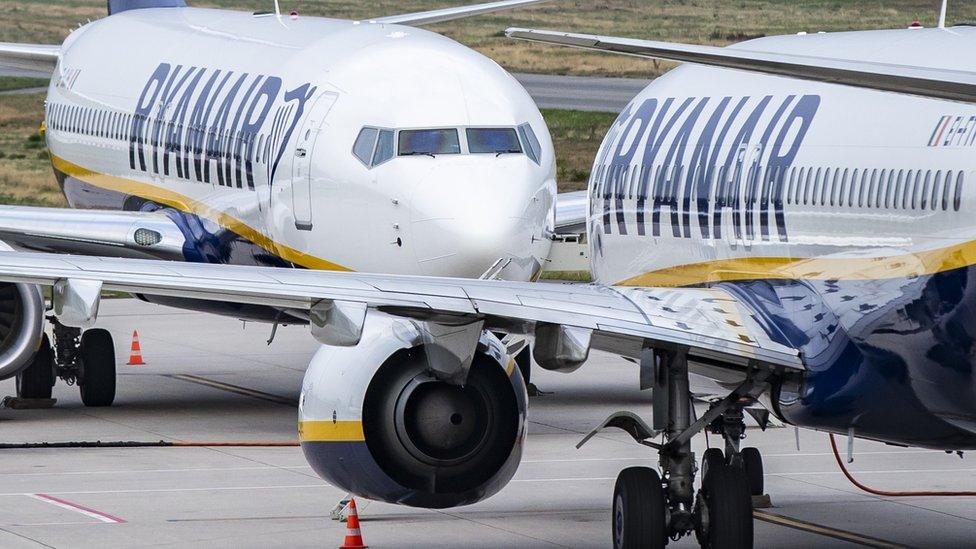
- Published10 August 2018
